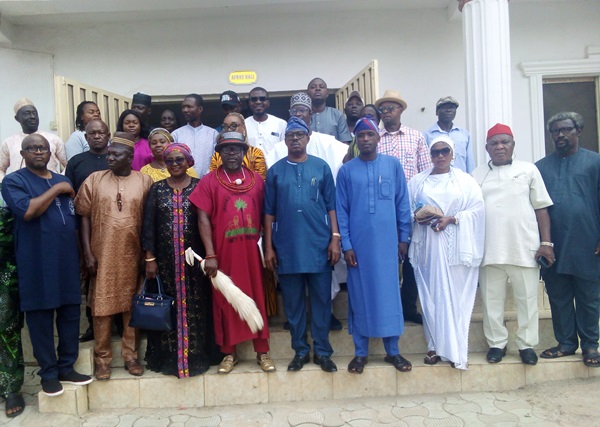
Founder of the Rufus Ebegba Centre for Leadership and Environmental Sustainability, Prof. Rufus Ebegba has called for a fundamental overhaul of Nigeria’s democratic system to address the deep-rooted challenges facing the nation.
He made this call at the 2025 Political Summit themed “Sustainable Nigerian Democracy” held in Abuja.
At the summit, Ebegba argued that Nigeria’s democracy requires not just reforms but a revolutionary rethinking to make it more effective and representative of the people’s aspirations. According to him, the current system has failed to deliver on its promises and needs urgent modifications to serve the nation better.
“I believe the party system must be critically re-examined. We need to consider whether our federated units should be restructured and if representation at the grassroots, state and federal levels can be improved. We must take a hard look at this because the current form of democracy has failed us as citizens in many ways,” Ebegba said.
He emphasised that for Nigeria to build a more sustainable and effective democracy, there must be deliberate efforts to tackle major obstacles such as insecurity, economic instability, unreliable power supply, widespread distrust among citizens and weak governance structures.
According to Ebegba, these systemic flaws have hindered the growth of democracy, and only by encouraging open discussions and critical examination of Nigeria’s political landscape can the country hope to build a governance system that truly represents its people.
He stressed that Nigeria’s democracy should not be viewed as static. Instead, it must be a system under constant evaluation and improvement. Ebegba called for collaborative efforts involving government authorities, civil society and everyday citizens to ensure that democratic institutions work effectively and inclusively.
“The work of democracy is never complete,” he noted. “It requires continuous engagement, accountability and reform to remain responsive to the needs of the people.”
Echoing this, deputy national youth leader of the Labour Party, Dr. Barry Johnson described the summit as timely given Nigeria’s numerous challenges. With the 2027 general elections on the horizon, Johnson highlighted the urgent need to strengthen democratic institutions, promote citizen engagement, and uphold the rule of law.
He criticised the Federal Government for sidelining young people in decision-making processes, insisting that Nigeria’s youth are not just future leaders but current stakeholders who must have a voice in shaping the country’s future.
“We need to stop making decisions for young people without involving them. They are the present leaders of Nigeria, not just the future,” he said.
Johnson also pointed to the political situation in Rivers State as a cautionary example, stressing the importance of respecting the electoral mandate of elected officials. Allowing governors to serve their full terms, he argued, will help stabilise the political environment and promote national unity.
Similarly, the president-general of the Jikwoyi Landlord Association in Abuja, Ikeago Dominic painted a grim picture of the daily struggles faced by ordinary Nigerians. He decried the deepening insecurity, worsening economic conditions, and crumbling infrastructure, all of which are eroding public faith in democracy.
“Today, insecurity has gripped the nation to the point where farmers fear for their lives and cannot safely harvest their crops,” Dominic lamented. “The cost of food has soared beyond the reach of the average family. Our electricity system is collapsing – citizens are forced to buy poles, meters, and cables themselves, yet they are left in darkness. Is this the democracy we were promised?”
He argued that unless these pressing issues are addressed, the dream of sustainable development will remain out of reach for most Nigerians. He urged leaders to act swiftly to create a governance system that delivers tangible improvements in the lives of citizens.
Adding to the conversation, secretary of the All Progressives Congress (APC) in the Federal Capital Territory (FCT), Hon. Usman Karshi expressed optimism about President Bola Tinubu’s leadership. According to Karshi, President Tinubu has the political will to implement transformative measures that will steer Nigeria towards meaningful progress.
“President Tinubu is a leader with the courage to make tough decisions. He is committed to steering Nigeria forward politically, economically, and socially,” Karshi stated. “There were many problems before this government took office, but the President is determined to give Nigerians a better life.”
Science Nigeria reports that the summit served as a critical platform for citizens, political leaders, and civil society actors to engage in frank discussions about the future of Nigeria’s democracy. Across the board, participants agreed that while Nigeria faces formidable challenges, inclusive dialogue and bold leadership can pave the way for a democratic system that delivers prosperity, stability, and hope for all Nigerians.

